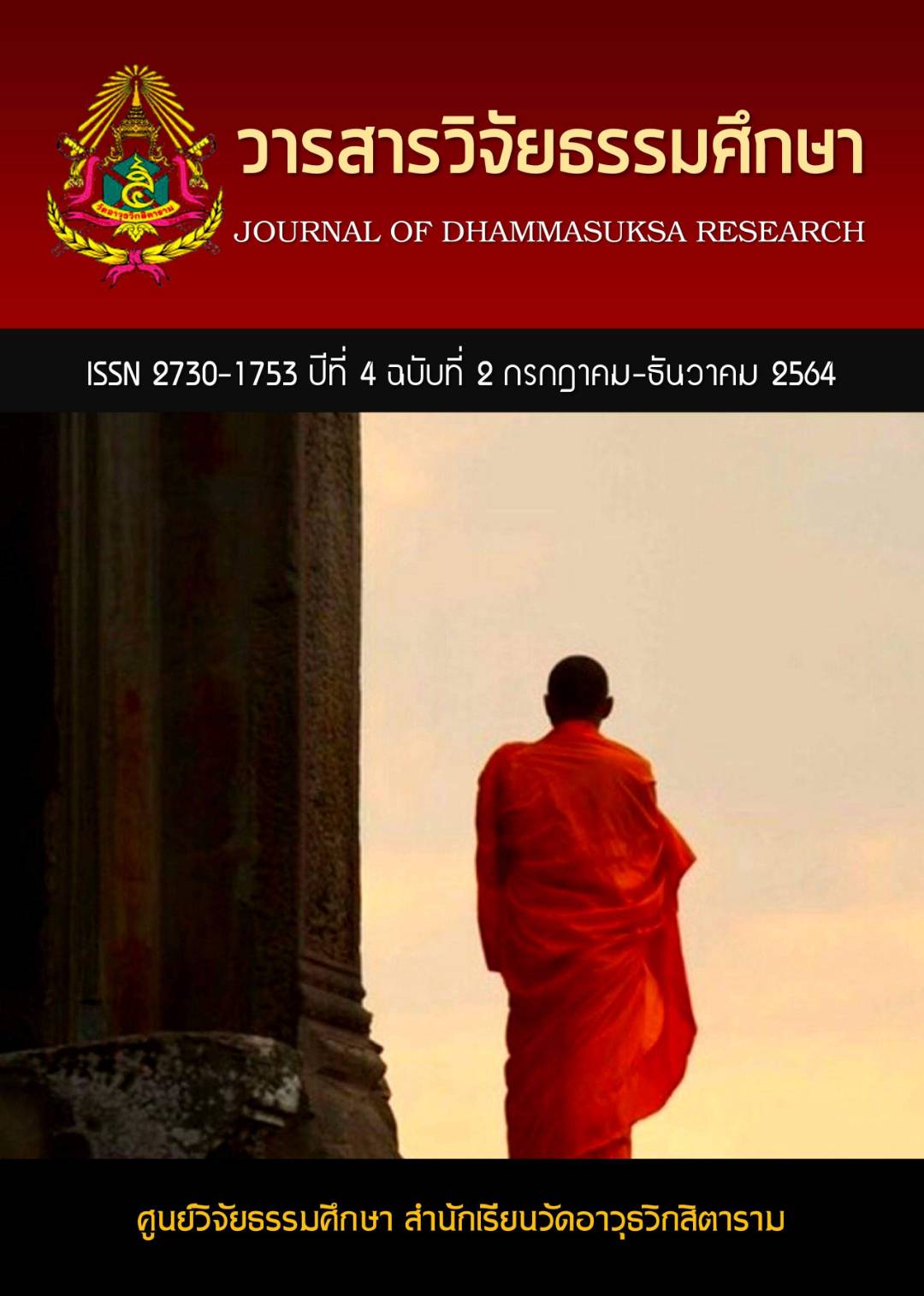The Development of Values and Ethics the Development of Community Enterprise in NakhonRatchasima Province
Keywords:
development, value, ethics, community enterpriseAbstract
A study of value and ethics development of community enterprise groups in Nakhon Ratchasima Province aims to 1) study Western and Eastern ethics, 2) study the concept of value and ethics of community enterprise occupation in Nakhon Ratchasima province, and 3) analyze the value and ethics of community enterprises and community enterprise occupations in Nakhon Ratchasima Province. It is participatory research via qualitative data analysis.
The results were found as follows Ethics is the science of goodness related on behavior or science of behavior such as “What should be done, what should be avoided, what should be done, what is wrong, what is right, and what is good”. Eastern ethics studied by the researcher are Buddhism ethics which are an ethical criterion laid down by those who know such as Buddha. Buddhism ethics can be divided into 3 levels: basic Buddhism ethics, intermediate level, and high level. The basic Buddhist ethics are 5 precepts. The intermediate level Buddhist ethics are ten principles of an honest man. The high-level Buddhism ethics are principles of practice for attaining a high level of Dharma which is the ideal of human life. They are the Eightfold Path or the Middle Path. There are many groups of Western ethics, however the main groups are Hedonism, Non-hedonism, Humanism, Utilitarianism, and Existentialism. 1.Ethics from the Hedonism group have the view that happiness is the best thing a man should seek. 2.In contrast, ethics from the non-hedonism view that the highest value that a human being should seek is not happiness. 3.Humanism believes that human beings are one thing in nature with dignity and the ability to develop themselves through reason and science. 4.Utilitarianism takes advantage of happiness as a criterion for deciding right, wrong, evil, or good as the most beneficial action. 5.Existentialism has an important principle as the heart of this philosophy by focusing on the condition of human existence. Concept of value and ethics of community enterprise occupation in Nakhon Ratchasima Province has 3 main reasons for appreciating the community enterprise occupation. They are to 1) preserve what ancestors have passed on, 2) make for a career seen as honest and sustainable, and 3) do it for what you love and be happy. Guidelines for enhancing and developing community enterprises in Nakhon Ratchasima Province consist of two stages. The step 1 is a stage of concept development which is the first step that must be done because it is the foundation or cornerstone. The step 2 is a stag of motivation and values for strength. Motivation and values are of the utmost importance as the research findings reveal that there are some community enterprises who feel bored in their careers and neither see the importance of traditional occupations according to the villagers' way, especially a group of teenagers who do not see the importance of community enterprise careers. The step 3 is a stage of implementing the principles. This stage is the final stage of effective implementation and effective development of values and ethics.
References
กีรติ บุญเจือ. (2551). คู่มือจริยศาสตร์ตามหลักวิชาสากล. นนทบุรี : เซน ปริ้นติ้ง.
ชัยวัฒน์ อัตพัฒน์. (2550). จริยศาสตร์ (ethics). กรุงเทพมหานคร : มหาวิทยาลัยรามคำแหง.
มหาจุฬาลงกรณราชวิทยาลัย. (2539). พระไตรปิฎกภาษาไทย ฉบับมหาจุฬาลงกรณราชวิทยาลัย. กรุงเทพมหานคร : โรงพิมพ์มหาจุฬาลงกรณราชวิทยาลัย.
สำนักงานเลขานุการคณะกรรมการส่งเสริมวิสาหกิจชุมชน. (2548). พระราชบัญญัติส่งเสริมวิสาหกิจชุมชน พ.ศ. (2548). กรุงเทพมหานคร : กรมส่งเสริมการเกษตร กระทรวงเกษตรและสหกรณ์.
รัชนี รูปหล่อ และคณะ. (2560). แนวทางการพัฒนาสู่ความยั่งยืนและเจริญเติบโตของวิสาหกิจชุมชน. วารสารวิชาการและวิจัย มทร.พระนคร ฉบับพิเศษ การประชุมวิชาการมหาวิทยาลัยเทคโนโลยีราชมงคล ครั้งที่ 5.

Downloads
Published
How to Cite
Issue
Section
License

This work is licensed under a Creative Commons Attribution-NonCommercial-NoDerivatives 4.0 International License.


